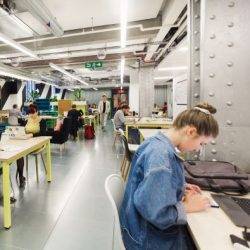July 20, 2017
People who are not economically active should be helped into the gig economy claims think tank
 Following last week’s publication of the Taylor Review into modern working practices, a new study from public sector think tank Reform makes recommendations for how government should help people into the gig economy, with a focus on those who are often economically inactive or restricted in the opportunities they have. In the report, Gainful Gigging, older and disabled people are explored as potential winners from recent growth in flexible working. Both groups are significantly less likely than average to be economically active, and many face significant work barriers. Around half of all 50-64 year olds manage at least one long-term health condition. Of the 3 million in this age group that are economically inactive, around 12 per cent spend over 20 hours per week looking after a sick, disabled or elderly person. Greater work flexibility could help them to enter the labour market, according to the report’s authors. In a survey of disability benefit claimants, many indicated that “flexible work, working from home [and] working less than 16 hours per week” would help them sustain employment. A review of the Work Capability Assessment for sickness benefits also found half of those deemed ‘fit for work’ require flexible work hours.
Following last week’s publication of the Taylor Review into modern working practices, a new study from public sector think tank Reform makes recommendations for how government should help people into the gig economy, with a focus on those who are often economically inactive or restricted in the opportunities they have. In the report, Gainful Gigging, older and disabled people are explored as potential winners from recent growth in flexible working. Both groups are significantly less likely than average to be economically active, and many face significant work barriers. Around half of all 50-64 year olds manage at least one long-term health condition. Of the 3 million in this age group that are economically inactive, around 12 per cent spend over 20 hours per week looking after a sick, disabled or elderly person. Greater work flexibility could help them to enter the labour market, according to the report’s authors. In a survey of disability benefit claimants, many indicated that “flexible work, working from home [and] working less than 16 hours per week” would help them sustain employment. A review of the Work Capability Assessment for sickness benefits also found half of those deemed ‘fit for work’ require flexible work hours.









 Emerging technologies such as artificial intelligence, robotics, virtual reality, augmented reality and cloud computing, will transform our lives and how we work over the next decade; and by 2030 every organisation will be a technology organisation. As such businesses need to start thinking today about how to future-proof their infrastructure and workforce, according to a report published by Dell Technologies. The research, led by the Institute for the Future (IFTF) alongside 20 technology, academic and business experts from across the globe also offers insight on how consumers and businesses can prepare for a society in flux. ‘
Emerging technologies such as artificial intelligence, robotics, virtual reality, augmented reality and cloud computing, will transform our lives and how we work over the next decade; and by 2030 every organisation will be a technology organisation. As such businesses need to start thinking today about how to future-proof their infrastructure and workforce, according to a report published by Dell Technologies. The research, led by the Institute for the Future (IFTF) alongside 20 technology, academic and business experts from across the globe also offers insight on how consumers and businesses can prepare for a society in flux. ‘























June 30, 2017
Why using recyclable materials is no longer enough to protect the environment 0
by Michael Tyerman • Comment, Environment, Workplace design
(more…)